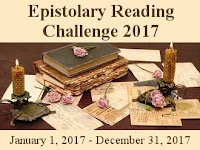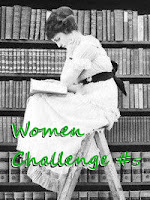 There is a reason why love letters have never entirely gone out of fashion. For some they are the epitome of romance because unlike the spoken word they are lasting and can be re-read at any time. Moreover, it’s often easier to express feelings in a letter. Everybody knows that to write one takes more time than to burst out some clumsy words, time to think about the right expression and tone. And then it has the advantage that the recipient doesn’t need to be at hand. The lyrical Letters to Felician by the late Austrian writer Ingeborg Bachmann show a passionate young woman in love who is full of longing for her absent beloved. But she also strives to find her way in life without knowing where it can lead her and if she will ever be able to achieve anything with the ghosts of the Nazi past haunting her.
There is a reason why love letters have never entirely gone out of fashion. For some they are the epitome of romance because unlike the spoken word they are lasting and can be re-read at any time. Moreover, it’s often easier to express feelings in a letter. Everybody knows that to write one takes more time than to burst out some clumsy words, time to think about the right expression and tone. And then it has the advantage that the recipient doesn’t need to be at hand. The lyrical Letters to Felician by the late Austrian writer Ingeborg Bachmann show a passionate young woman in love who is full of longing for her absent beloved. But she also strives to find her way in life without knowing where it can lead her and if she will ever be able to achieve anything with the ghosts of the Nazi past haunting her.Ingeborg Bachmann was born in Klagenfurt, Austria, in July 1926. After World War II, she studied philosophy, psychology, German philology, and law at the universities of Innsbruck, Graz and eventually Vienna and made her literary debut in 1946 with a short story in a local magazine. Following graduation, she worked as editor and scriptwriter for the Allied radio station Rot-Weiss-Rot until her literary breakthrough at a writers’ conference where she read her lyrical poetry allowed her to give up her job. She settled down in Rome, Italy, but travelled a lot – not least because between 1958 and 1962 she had an affair with Swiss writer Max Frisch. With time her focus shifted from poetry to prose like the short story collections The Thirtieth Year (Das dreißigste Jahr: 1961) and Three Paths to the Lake (Simultan: 1972), The Book of Franza & Requiem for Fanny Goldmann (Der Fall Franza/Requiem für Fanny Goldmann: 1966) and her only finished novel Malina (1971). Ingeborg Bachmann died from severe burns after a fire in her apartment in Rome, Italy, in October 1973. Several of her works, among them Letters to Felician (Briefe an Felician: 1991) originally written in 1945/46 and her War Diary (Kriegstagebuch: 2010), were published posthumously.
The first of the Letters to Felician dates from May 1945 and the place where the author as her own young self writes it is the little town of Velden on the shore of the Wörthersee in Carinthia in southern Austria. The loved one whom her lyrical gush of longing addresses is a fictitious or maybe just fictionalised and strongly idealised man. In fact, her darling remains shapeless and appears rather like an idol adored from afar or even like the hazy phantom from an exquisite dream. But the letters of the young woman passionately in love for the first time don’t only overflow with romantic and ecstatic, sometimes erotic fantasies surrounding him and above all his not being there to embrace, to kiss and to love. She also raves about the beauty of nature in the country where she has grown up. The night sky, the wind, the forests, the frogs, the lake, everything stimulates a wild desire that she links with her imaginary lover almost without fail. Even more importantly, though, she confides to him other feelings that carry her away and even tear her apart. The long anticipated start into a new life fills her with hope and enthusiasm, and yet she says that her work and her thoughts torment her. She is afraid of losing her way or not even to find it in a world where everything is uncertain. Although she hardly refers to actual events, the letters clearly reveal the scars that the horrors of the Nazi regime and the experience of war left in her soul. In September 1945 she already writes to her beloved from Innsbruck. She knows that their relationship approaches its natural end and enters into the painful process of saying good-bye that lasts until her last letter from April 1946.
When the author set out to write her Letters to Felician, she was not yet nineteen years old and had put to paper already considerable amounts of (unpublished) poetry and other writings. World War II had just ended and for her as well as for everybody else it was a time of infinite uncertainty, but at least there was love to hold on to. Some say that writing her letters she thought of the Carinthian poet Josef Friedrich Perkonig whom she knew as a teacher at her high school in Klagenfurt and on whom she reportedly had a crush. If Felician was a real person or not doesn’t really matter, though, because in the end, the letters are less about him than they are about the author herself and her search for identity and meaning. And they already show much of the desperation and inner strife characteristic of her later work. Ingeborg Bachmann’s language is full of powerful images and poetry, so much so that to me it already feels kitsch. On the other hand, it’s a very early work that the author probably never intended for publication and that even her heirs released only eighteen years after her death.
The (only) German edition of Letters to Felician by Ingeborg Bachmann is a very slim and illustrated volume that I had some difficulty to lay hands on although the author after whom one of the most prestigious awards of German-language literature is named is held in high esteem here in Austria. In the end, I resorted to borrowing a copy from the library although most used books make my eyes burn and my nose run in no time. Luckily, it was a very quick read and I didn’t need to put up with its discomforts for long! I may not be particularly fond of lyrical prose without much of a plot, but I certainly enjoyed this one, notably keeping in mind that the letter-writer was a young woman hardly out of the romantic exuberance of adolescence. I’m sure that readers with a stronger poetic vein will adore her book. Therefore I gladly recommend it.
* * * * *
This review is a contribution to
(images linked to my reading lists):
(images linked to my reading lists):


I found all of your background information on the author fascinating.
ReplyDeleteWell, I must admit that I had some trouble to summarise the letters because there isn't really a plot and they are mainly gushes of longing and inner strife... typcial of a romantic young woman, I dare say. And then I too found the background information about the book more interesting than the book itself. I don't have much of a romantic vein, as a matter of fact.
Delete